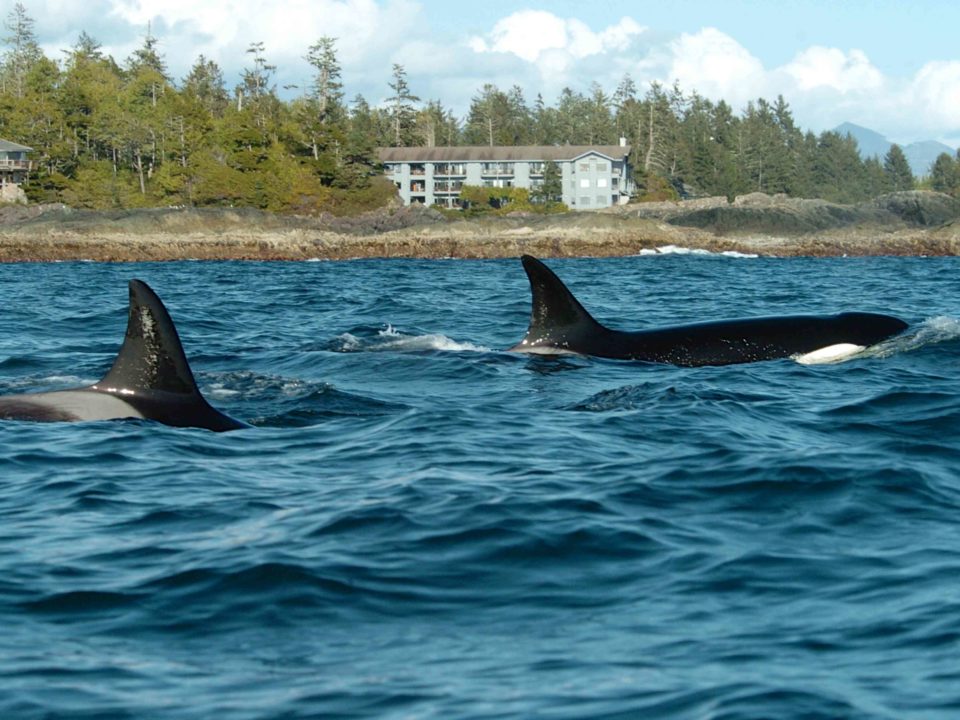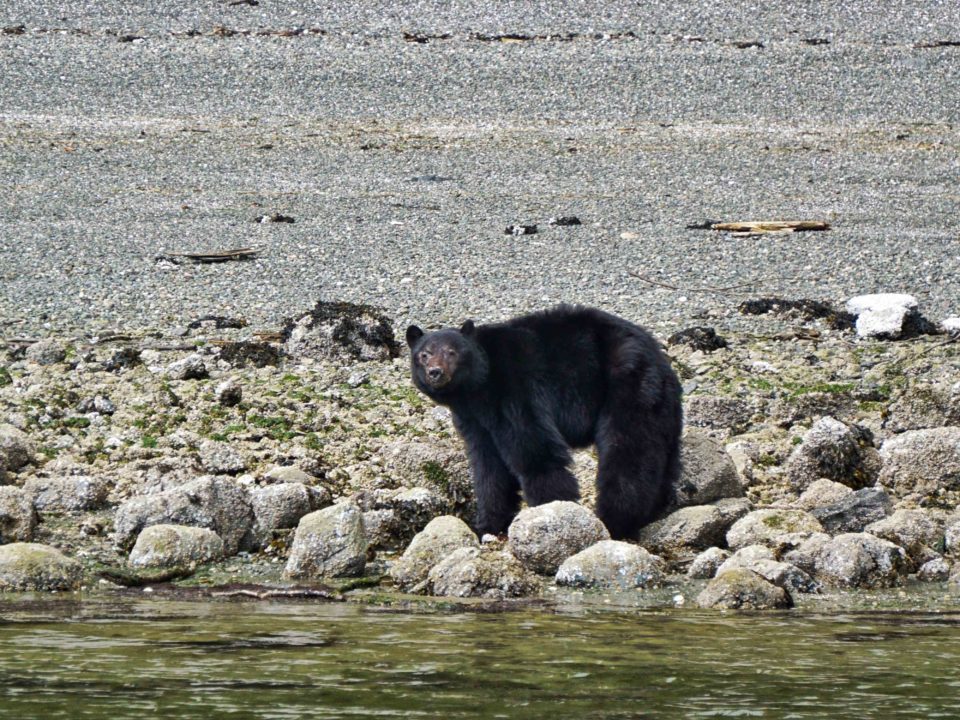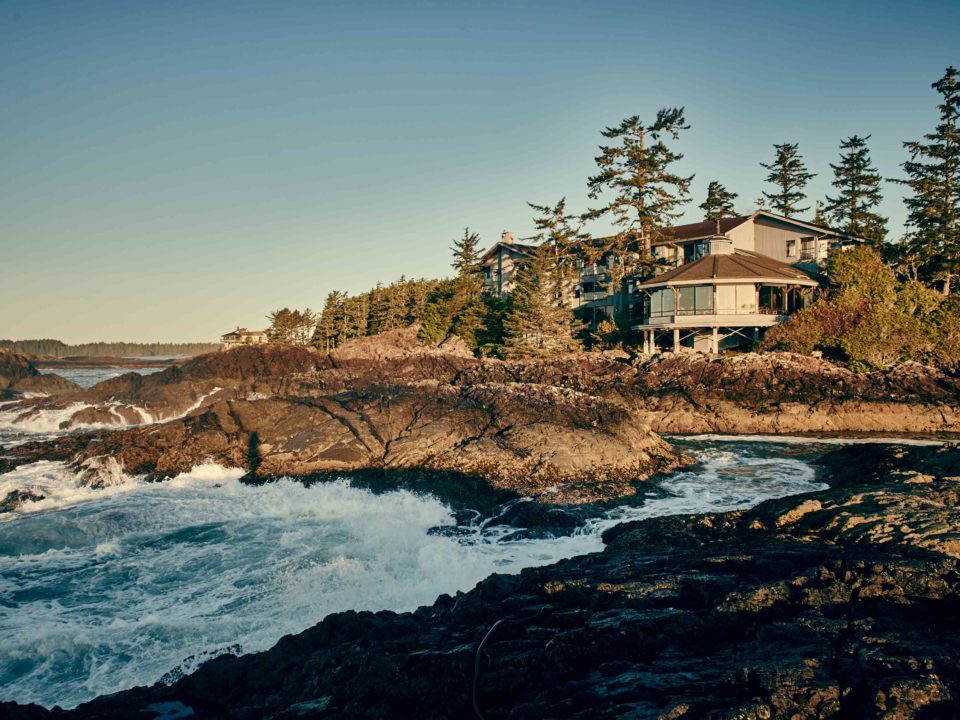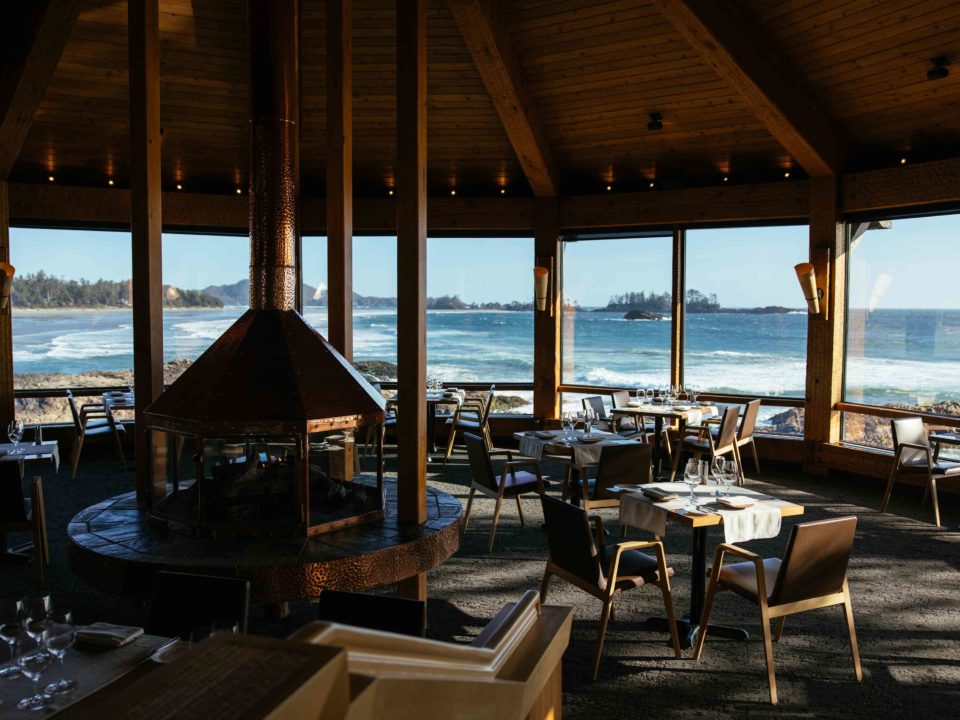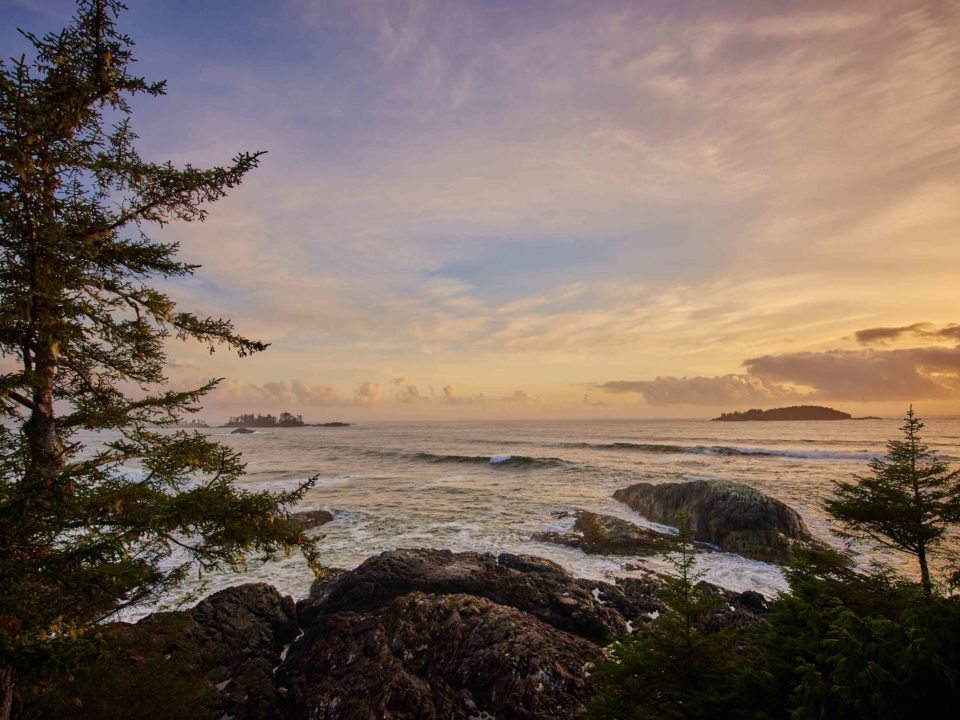Breakfast is served on the beach. In the narrow, pebbly strip where old-growth forest gives way to lapping emerald water, a solitary diner chomps on fresh crab and clams. Turning his hairy back to us, the crunch of shells is audible some 20 feet away. Fair enough: table manners don’t matter much when you’re a bear, especially one who’s fresh out of hibernation and getting your first square meal in six months.
This is exactly the kind of wildlife encounter I was hoping to find on Vancouver Island’s western coast. Here, the Pacific buffets a granite coastline and slips into the deep, fjord-like inlets of Unesco-listed Clayoquot Sound Biosphere Reserve, providing the perfect hunting ground for orca, sea lions, harbour porpoises and (in the warmer months) migrating grey and humpback whales, while endless wooded slopes conceal shy, solitary hunters: wolves, cougars, and of course our crab-guzzling friend, Ursa Americanus.
‘Seafood buffet is the bears’ favourite,’ grins Ron, a guide with local eco-tourism operator Ocean Outfitters. ‘At low tide, they come down here to forage starfish, kelp, all sorts.’
We’re watching from a boat, down wind and far enough to avoid disturbing the hungry 300-pound bear, or vice versa. Though Ron says their eyesight is notoriously bad, as one mighty paw effortlessly flips over microwave-sized boulders to snaffle the morsels beneath, the body of water between us feels reassuring.
Gliding further into the Sound, we pass a further four bears tucking in on their own private patches of beach, as well as a sea otter floating serenely on its back, whiskery face upturned to the sky. Then, circling an outcrop, Ron points and calls out ‘rock sausages!’
It’s a colony of harbour seals. Awkward and fairly immobile out of water, their lozenge-shaped bodies do undeniably resemble a row of Frankfurters sizzling in the crisp morning sunshine.
But by the time the Zodiac circles back into Tofino harbour, the weather has turned dramatically, as it so often does here. The silhouettes of hemlocks, spruces and towering cedars, some more than 1000 years old, have been blotted out by a hailstorm. Luckily, I’m not left at the mercy of the elements, as one of Wickaninnish Inn’s electric vehicles is waiting to whisk me back to the hotel.
The 10-minute drive passes low-lying clapboard buildings housing a mixture of galleries and cafes. This little fishing town sits on a peninsula that curves out of Clayoquot like a finger beckoning to the Pacific.
At the dock, a sign marks the terminus of the Trans-Canada Highway – this is literally quite the end of the road. Perhaps because of this, Tofino’s long exuded a larger-than-life magnetism for oddballs, artists and surfers, whether they’re seeking out wilderness, bonhomie or simply the epic swell that lashes its long, sandy beaches.
Although by far the town’s most luxurious stay, Wickaninnish Inn is loyal to both the quirky, artistic spirit – managing director Charles McDiarmid, a lifelong Tofino resident, made sure of that.
Take the property’s beachfront wood carving cabin. Local master carver Henry Nolla could often be spotted there whittling away in his birthday suit; the Inn’s front doors, beams and fireplaces are largely his handiwork, crafted from the honey-hued local Yellow Cedar (though he passed away in 2004, a new generation of fully clad craftsmen carry on the trade there today).
The architecture is similarly in-sync with the surroundings. Standing no taller than the surrounding forest, the buildings hunker down the headland. With my balcony doors open, the waves provide a highly effective lullaby.
I can see lichen mottling the trunks of wind-contorted trees, when looking out the window, and raindrops studding pine needles like tiny glass ornaments. It’s almost if the room’s embedded in this craggy outcrop.
In the restaurant, the Pointe, the 240-degree views over Chesterman Beach and beyond are more mesmerising still. While tucking into a tasting menu focused on local seafood and foraged ingredients, I watch a roiling gunmetal sea kicking up white-frilled waves, fountaining over submerged rocks, rushing into tidal pools. Huge cedars are mere matchsticks to the waves, judging by the felled trunks heaped up at the high tide mark.
Telescopes and binoculars are dotted around the Inn, ready to be seized by those lucky guests to stay when grey whales breach offshore. En route to summer feeding grounds in the Arctic, some 20,000 of these ocean giants pass through the Sound every year.
My whale-watching boat trip in nearby Ucluelet proves less fruitful than breakfast with the bears (read: zero whales), but it’s a big ocean, and surely if sightings were guaranteed, this would lessen the thrill when any wild animal does choose to reveal itself?
Like when I’m taking a final stroll along Chesterman and a sudden, darting shape pulls my gaze away from the surfers, up to the sky. The bird’s wingspan is vast (six to eight feet, I read later) but it’s the white-feathered head that’s the giveaway. A bald eagle – no, wait, two – soaring over the sand. The pair cruise towards a rock island where their nest is just about discernible, a dark clump in the treetop.
Impromptu, spirit-raising, unforgettable – this is what the wildlife encounters of Vancouver Island are all about. As for those elusive whales, at least I’ve got a good excuse to return next year.
For more wildlife encounters explore our collection of safari lodges and tented camps


